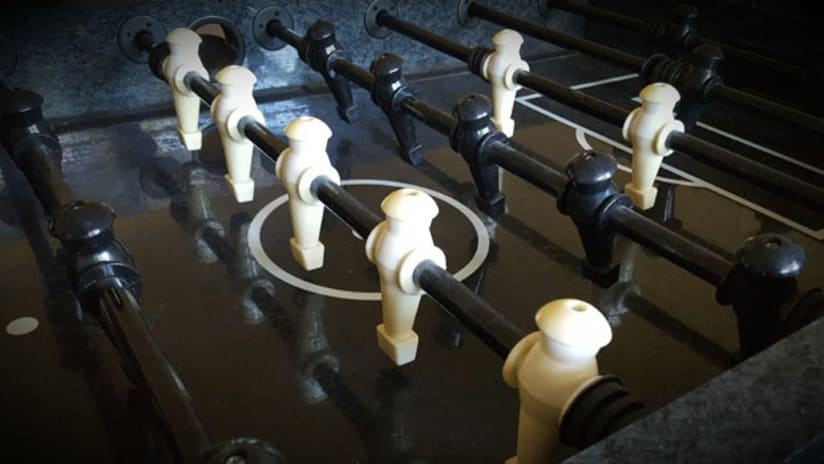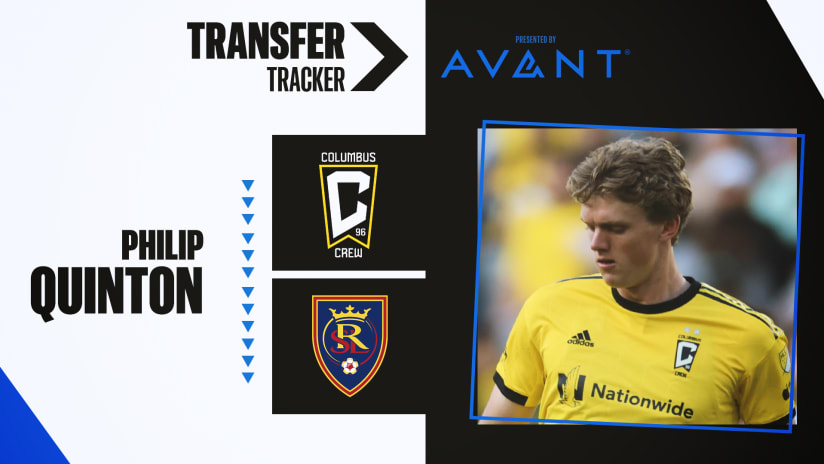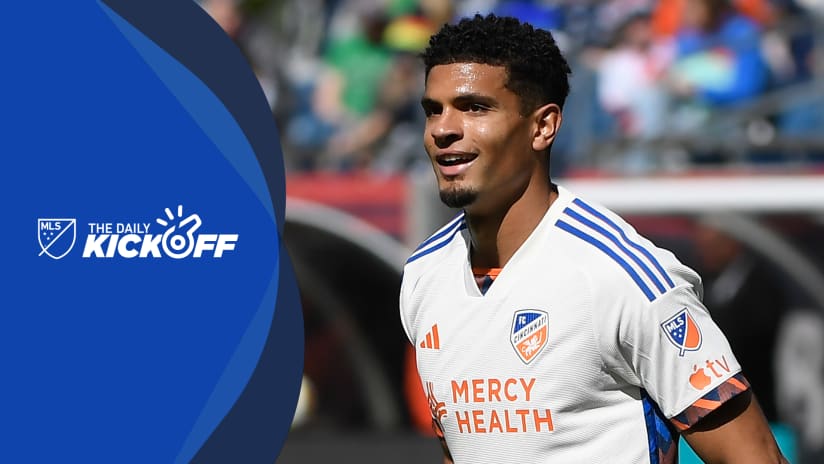DENVER – Colorado is the epicenter of North American soccer this week, with a multitude of stars, Spurs and supporters converging on Denver ahead of the 2015 AT&T MLS All-Star Game at Dick’s Sporting Goods Park on Wednesday (9 pm ET on FOX Sports 1, UniMas, TSN and RDS).
But the state has long been a world capital for another iteration of the sport that has thrived there long before MLS came to town in 1996.
Over the past few decades, the Rocky Mountain State has become home to numerous top-ranked players in the world of table soccer – commonly known as foosball – giving it a fair claim as the sport’s spiritual home.
“I would say eight of the top 100 players and four of the top 25 live in Colorado,” says Dan Barber, who has been ranked as high as No. 26 in the world. “We have the best players and other players from around the world tend to be drawn to where the best players are.”
Just like outdoor soccer, table soccer is currently dominated by the Germans, with three German players in the International Table Soccer Federation (ITSF, or foosball FIFA) top 100, including No. 1 ranked Jamal Allalou. In fact, the name "foosball" comes from the German name for soccer: “fußball.”
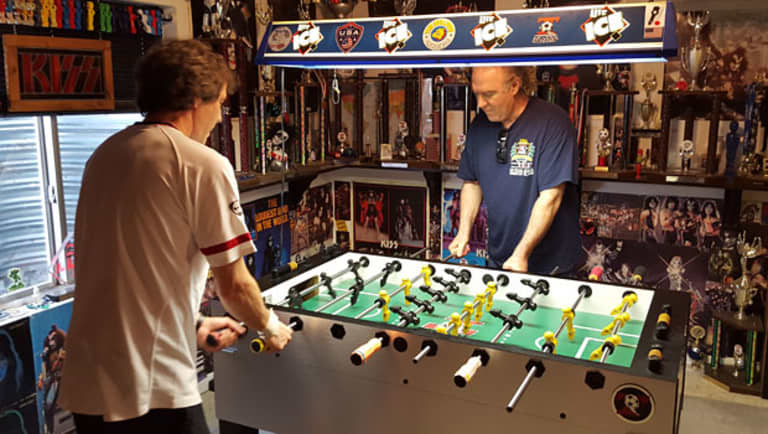
But there's still no place quite like Colorado on the foosball scene. The $20,000 Colorado State Tournament, sanctioned by the ITSF, draws competitors from around the world each year.
“It will be the biggest tournament in North America this year,” explains Sheri Chapman, who runs over 50 tournaments in the state of Colorado each year when she's not operating her refrigeration business.
“People around the world know to come here,” Barber adds. “For the Colorado State Tournament we had eight competitors from Kuwait come play in our tournament, because it’s the best tournament in North America.”
Barber even hosts training session for Table Soccer World Cup qualifiers – yes, there’s a foosball World Cup, and it’s held every year in various places around the globe – in his basement, sometimes drawing up to 70 players. He’s not the only one hosting high-level foosball in Denver, either.
Amid a scene of flashing lights, electronic sounds and some occasional loud yelling, you can often find two competitors squaring off head-to-head on a nightly basis in the basement of Robert Mares, a former foosball world champion.
As the captain of Team USA Foosball, which recently finished top four in a World Cup tournament in April, Mares’ home has become one of many bases for the sport in Denver, with plenty of top players moving to the city to hone their skills.
“I moved [to Denver] because of foosball in 1994,” Mares explains. “I wanted to be in the thick of it. I wanted to be a world champion.”
Akin to its rec room brethren billiards, darts, table tennis and poker, foosball is a sport and with tournament purses in the thousands of dollars, it’s hard to argue the contrary.
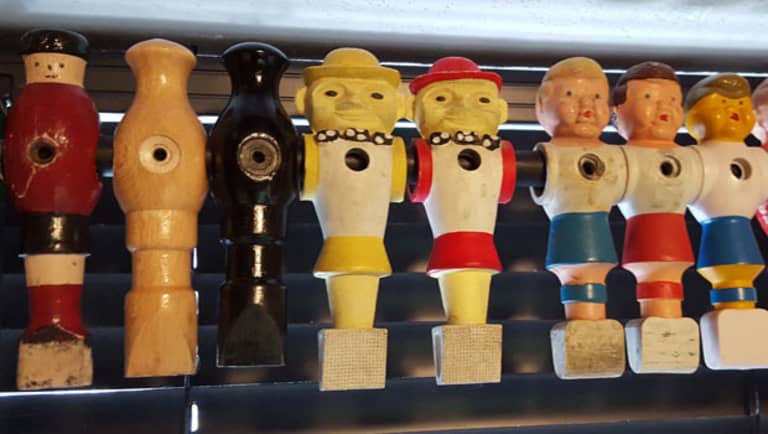
Invented by Englishman and proclaimed Tottenham Hotspur fan Harold Thornton in the early 1900s, foosball shares numerous elements with its parent sport. Before Americans upped the total number of “players” to 13, traditional foosball tables from Europe featured 11 men on each side. Traditionalists also “kick off” from the center of the playing field, forgoing use of the serving cups on the sides of some newer-style tables.
Denver put itself on the table soccer map in 1974, when the city hosted the first recognized international championship or “Foosball World Cup” at Elitch Gardens Amusement Park. Local Mike Bowers became the first ever world champion, and his hometown has remained a foosball mecca ever since.
“Being the guy that won the first one, I know what my motivation was,” Bowers says. “There was nobody from Colorado that they called a world champion. I wanted to be the first guy, regardless of what sport it was.”
Known as “Dr. Bow” in the foosball world, his success garnered him respect in even the most exclusive Denver circles. At Cherry Hills Country Club, pro shop workers would special order the lucky golf gloves he would wear for tournaments.
“I used to always have to play with their gloves,” Bowers recalls. “Before one of the foosball world championships, they were out of them because they were hosting a PGA event. The guy at the pro shop had them sent in the next day for me before I left town.”
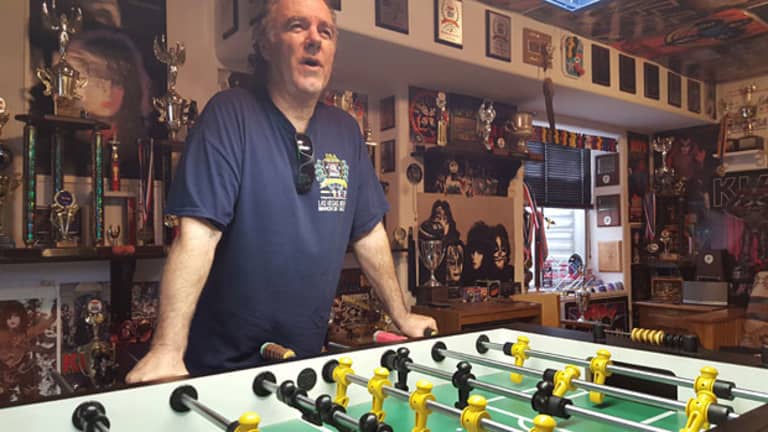
But Bowers (pictured above) wasn't just in it for himself. He invested his $50,000 winnings from the first tournament into expanding foosball, purchasing tables and opening game rooms in the Denver area.
“I really immersed myself in it during the 1970s,” he explains. “I didn’t just stay involved as a player, I opened up three game rooms with 45 foosball tables on location. It helped create quite a base here.”
- ExtraTime Radio: Going 1-on-1 with Chipotle MLS Homegrown Game coach Landon Donovan
Bowers’ expansion led to more players in the Denver area becoming introduced to the sport, including a young Todd Loffredo, who would later became one of the winningest players in foosball history.
“He came stumbling into one of my game rooms at 15 or 16 years old,” Bowers recalls. “He had never won a tournament. One of the first things he said to me was: ‘I want to be a world champion’.”
Foosball peaked in the late 1970s with a million-dollar pro tour before bumbling promoters, bankruptcies and the onset of the video arcade era led to some dark years for the sport. But players like Bowers and Loffredo kept the sport alive as a sort of underground subculture during its leanest times.
Word of mouth continued to spread, and through mutual friends and competitors, Mares too eventually found himself in foosball paradise.
“As an up-and-coming player I was friends with Terry Moore, the No. 1 ranked player at the time and he would stop in Denver to train with Loffredo,” Mares remembers.
Things fell into place for Mares and his wife to make a permanent move from Arizona to Denver in early 1994. Not too long after, he found himself hoisting his own trophies.
Others quickly joined him. Largely regarded as the best female player in the game with multiple championship titles, Alabama native Cindy Head also made the move to Denver.
“There’s a fast advancement curve in Denver,” explains Mares (pictured below). “That’s why people want to move here. No doubt, moving to Denver helped put the finishing touches on my game.”
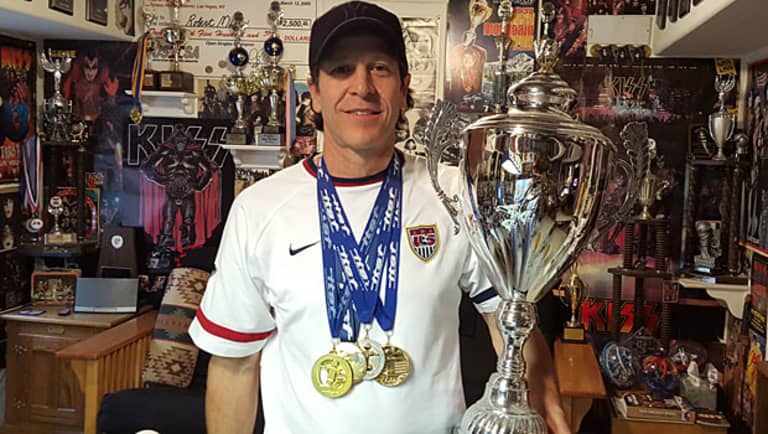
Mares’ career itself is indicative of the ebb and flow of the game. Sometimes Mares would spend his days living in Moore’s van, playing foosball while touring the country. Other times, he would gross $11,000 in a single weekend from tournament winnings. Today he's a semi-retired small business owner of an awnings operation. The flexible job schedule has always been key to continue his foosball pursuits.
"You'll find everything from NASA employees to landscapers," Mares said about the real-life jobs of foosball players he knows. "There are only one or two top players that don't have a job outside of foosball: police officers, store managers, I know an anesthesiologist, salesmen, a graphic designer and there's also a UPS driver."
Long gone are the days of million-dollar foosball tours, but both Bowers and Mares believe that through a concerted effort, the game’s biggest international tournament will eventually make its return home to Denver.
“No matter where you hold the World Championships, there’s a Denver presence, but it’s been a while since they’ve had it here,” Bowers said. “In 2024, it’s going to be the 50-year anniversary. They need to plant the seed to host it here.”

